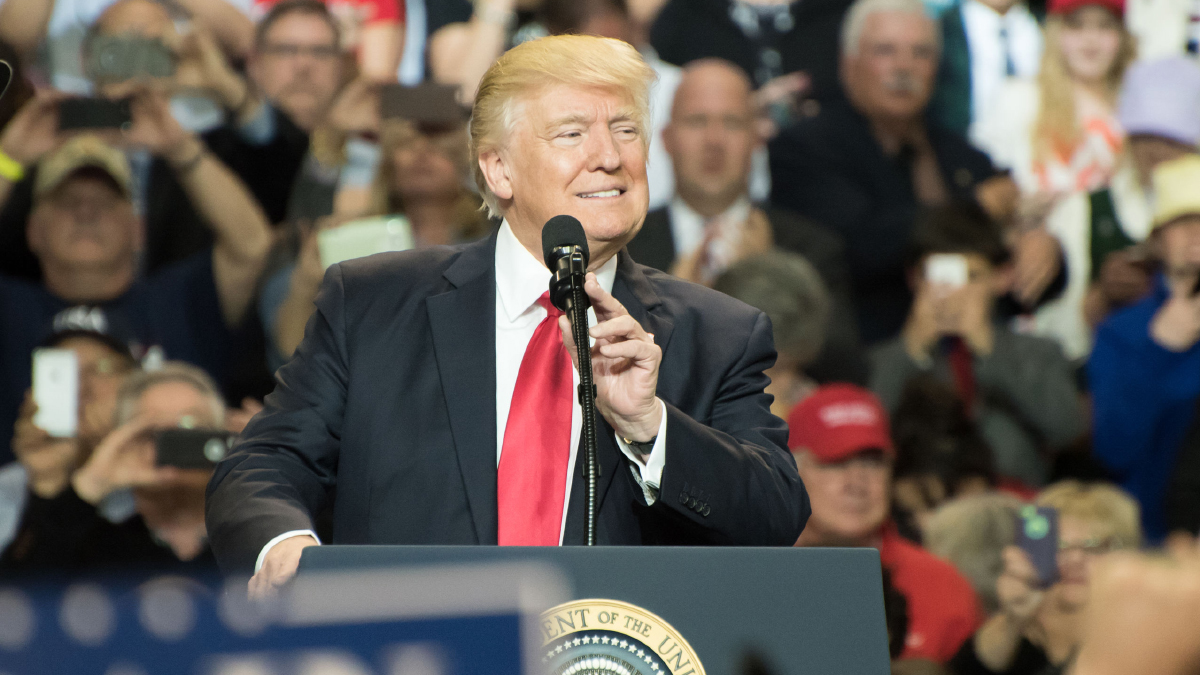Although the media is properly focused on the very troubling issue of Russian meddling in the 2016 election, and the Trump campaign’s apparent willingness to collude with a foreign power to win it, and the heretofore Republican debacle in trying to repeal Obamacare, progress is being made on less publicized issues—whether by the Trump administration or other branches of government pushing back against it.
Let’s start off with some unblemished kudos for the Trump administration. Trump is cutting off aid to American-backed rebels in Syria that had absolutely no chance to overthrow Bashar al-Assad’s brutal Russian-backed government (US aid and military advisers supporting groups fighting ISIS in eastern Syria are being augmented). Although the media focused on this move’s helping Russia without getting much in return, the policy change was long overdue. After US removal of Saddam Hussein in Iraq and Muammar Gaddafi in Libya produced chaos, instability, and increased terrorism in both countries, the Russians were likely right that removing Assad would have led to the radical Islamists—either ISIS or al Qaeda-linked groups―taking over the entire country. Ending aid to such anti-Assad rebels may help Russia, but it is also the wise thing to do anyway.
The rough-and-tough Trump administration also made the correct decision to bring an al Qaeda terrorist suspect to the United States for trial in a civilian federal court, instead of trying him in one of the kangaroo military tribunals at the prison in Guantanamo Bay. This move may be a tacit acknowledgement that civilian courts have a much greater success rate at actually trying, convicting, and punishing terrorists than do the unconstitutional tribunals, which have besmirched the reputation of the admired American justice system.
Next, on to an issue on which the Trump administration should get partial praise. Although Trump has railed against Obama’s multilateral nuclear deal with Iran―which obligated the Iranians to suspend their nuclear program in exchange for relief from economic sanctions―he avoided scrapping the agreement, probably because other countries besides Iran are involved in the pact. It has been widely acknowledged that Iran has complied with the agreement. Yet, the Trump administration is violating the spirit, if not the letter, of the deal by slapping new sanctions on Iran’s missile program and its Revolutionary Guard Corps. Although Trump’s Secretary of Defense James Mattis is an anti-Iran hardliner, and Trump’s inclination is to side with Saudi Arabian despots against the somewhat more democratic Iranians, the United States does share some interests with Iran—for example, in countering ISIS—and should probably have a more even-handed relationship with Iran, Saudi Arabia, and Israel.
The history of economic sanctions indicates that they can sometimes bring short- to medium-term economic pressure on a target nation, until the victim learns how to evade them, but are usually ineffective in compelling the target to make major political changes—their primary goal. Thus, sanctions usually end up costing the target money and having a symbolic effect, but not motivating decisive behavioral change. As a result, the augmented sanctions bill—on Iran, North Korea, and Russia—that will probably be passed with overwhelming veto-proof majorities in Congress will likely not improve the behavior of any of these countries. Despite these major drawbacks, however, the bill is needed to inflict some punishment on Russia for what was a direct attack on American democracy. True, the United States has meddled in other nations’ elections in the past, and should stop it, but some punishment is nevertheless needed to deter such future meddling in US polls. President Obama’s punishment of Russia by kicking out 35 Russian diplomats and closing their vacation spots in the United States was a pathetic response to such a substantial offense.
President Trump has been leery of the sanctions bill, because it compels him to get congressional approval to remove any sanctions from his beloved Russia, but it is necessary legislative pushback on an imperial president with authoritarian tendencies.
Other American institutions are also rallying against potential tyranny—the courts on Trump’s travel ban seemingly aimed at Muslims, suspicious states in denying him their voter information, the State and Defense Department bureaucracies by pushing back on his slavish support for Saudi autocrats in their dispute with tiny Qatar (which hosts a major US base used in the war against ISIS), and the media in fact checking his myriad of lies and in its dogged investigation of the very important potential collusion with Russia and probable obstruction of justice.
Thus, despite the pall of scandal, some incremental progress is being made during the Trump administration—either by the administration or by the checks and balances against it in the American system.

















